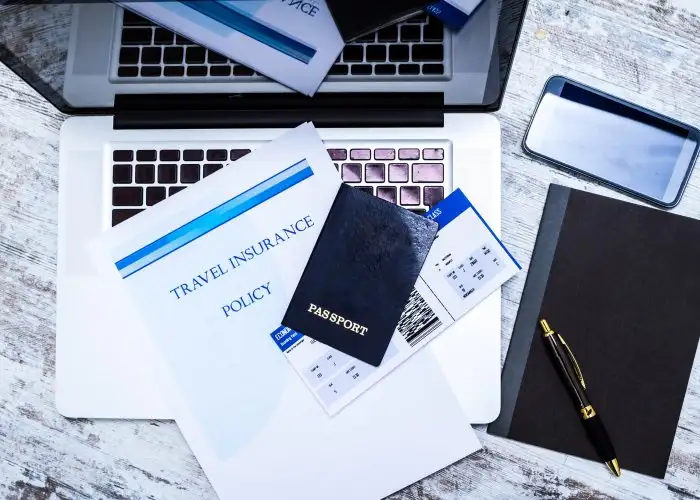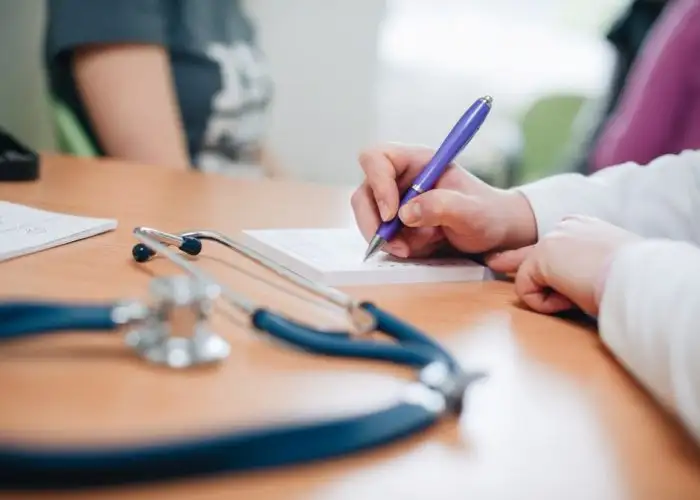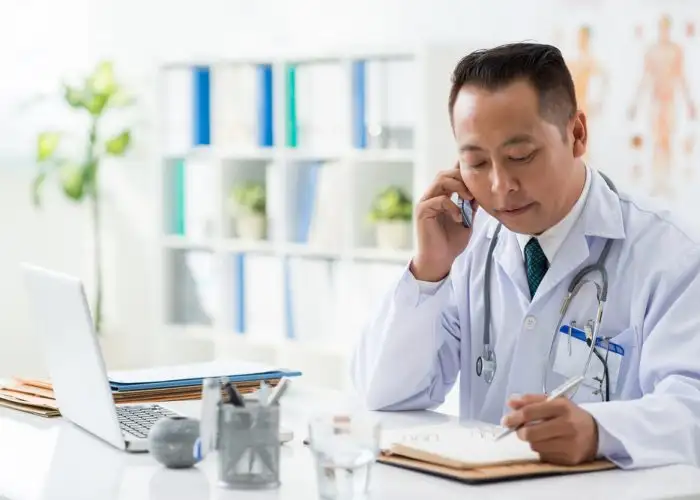The worst thing that can happen on a long-awaited adventure isn’t missing a flight or losing your luggage—it’s getting sick. Flights can be rebooked and personal items replaced, but your wellbeing can’t. Even if you’ve attended your pre-travel clinic appointments and packed all the preventative sanitizers and medications in the world, the flu or infectious diseases can still make you miss a lot of your vacation.
The good news is there’s plenty you can do to make that misfortune less disruptive, especially if you have travel insurance and a game plan. Here are some tips—including the advice of a travel-clinic doctor—to keep in mind for those times you become sick while traveling, especially abroad.
Image Gallery

Know Your Travel-Insurance Policy
The moment that symptoms of an illness set in is the moment you'll either be relieved you purchased medical travel insurance or promising yourself you'll never skip it again. Having a travel insurance policy that includes medical coverage is especially important if you're traveling abroad where your health insurance may not cover you. You can get an insurance policy in just a few minutes and for as little as a few dollars a day—it could save you hundreds or even thousands of dollars. Out-of-pocket medical care isn't cheap.
Once you have travel insurance, know its terms. Some policies cover extensive medical-related costs like body casts and flights home, while others might only cover emergency-room care. Know what your options are so you can assess what's necessary and what will cost you.

Know Your Travel-Insurance Policy
The moment that symptoms of an illness set in is the moment you'll either be relieved you purchased medical travel insurance or promising yourself you'll never skip it again. Having a travel insurance policy that includes medical coverage is especially important if you're traveling abroad where your health insurance may not cover you. You can get an insurance policy in just a few minutes and for as little as a few dollars a day—it could save you hundreds or even thousands of dollars. Out-of-pocket medical care isn't cheap.
Once you have travel insurance, know its terms. Some policies cover extensive medical-related costs like body casts and flights home, while others might only cover emergency-room care. Know what your options are so you can assess what's necessary and what will cost you.

Don't 'Wait and See' on Flu Symptoms
Traveling during flu season makes you more prone to debilitating sickness in already germy areas like planes, but many infectious diseases (Zika, Dengue, Chikungunya) also start out with flu symptoms like fever and nausea. It's important to get to a doctor for a diagnosis as early as you can if you have debilitating symptoms—waiting to see if you'll feel better could mean missing the window for treatment, so it's better to be safe than sorry.
"If it really is the flu, medication can be given early in the course of illness to reduce duration of symptoms," Dr. Natasha Hochberg, co-director of Boston Medical Center's Travel Clinic, told me. "Many other illnesses such as malaria and dengue can manifest with fever and aches too; these often require medical attention, so I would urge travelers with these symptoms to seek medical care."

Find the Right Clinic
Finding a doctor abroad doesn't have to be a shot in the dark. Dr. Hochberg recommends the International Society of Travel Medicine's website, which is home to a Global Travel Clinic Directory that lists clinics by country based on the type of care they provide, the languages their doctors speak, and where they're located. Travelers without Internet access can also call the destination's U.S. embassy for that information—so don't forget to save the necessary Department of State phone numbers in your phone before you travel.

Listen to Your Body
Once you've been diagnosed, it's important to heed the doctor's advice and to listen to your body. You might be tempted to try to keep up with your travel plans, especially if you made arrangements for exciting new experiences—but your immune system is down and recuperating is important. Avoid potentially risky food situations like street food, and get plenty of sleep and fluids. "Hydration and rest are helpful," Dr. Hochberg says. Getting enough of both might help you recuperate in time to finish out your trip in good spirits.

Let Your Doctor Know
It's important to keep your primary doctor back at home in the loop. There's no need to be calling him or her with updates, but sending an email or calling once you've returned to let them know is important. They'll want to know your condition in case of any lasting effects or complications related to other conditions or medications you might have.
"Importantly, anyone returning home ill should reach out to a travel care provider or their primary care doctor as quickly as possible," Dr. Hochberg says.
More from SmarterTravel:
- How to Stay Healthy While Traveling
- 8 Ways You’re Sabotaging Your Health While Traveling
- Healthy Airport Foods You Can Eat on the Go
Associate Editor Shannon McMahon writes about all things travel. Follow her on Twitter and Instagram.
We hand-pick everything we recommend and select items through testing and reviews. Some products are sent to us free of charge with no incentive to offer a favorable review. We offer our unbiased opinions and do not accept compensation to review products. All items are in stock and prices are accurate at the time of publication. If you buy something through our links, we may earn a commission.
Related
Top Fares From
Today's Top Travel Deals
Brought to you by ShermansTravel
12-Night Peru Escorted Tour, Incl. Sacred...
Wingbuddy
 vacation
$2198+
vacation
$2198+
Amsterdam to Copenhagen: Luxe, 18-Night Northern...
Regent Seven Seas Cruises
 cruise
$12399+
cruise
$12399+
Ohio: Daily Car Rentals from Cincinnati
85OFF.com
 Car Rental
$19+
Car Rental
$19+




